"The presence of shells penetrating KV armor ..."
Ditch stumbling for tanks
Most of the failures of the Soviet troops in 1941-1942. in one way or another, they are associated with sparse formation of formations, when divisions occupied bands much wider than statutory norms. The concomitant blunders in determining the direction of the strike of the enemy made the picture of events quite obvious and explainable.
The Crimean front represented to all this the exact opposite: its troops occupied defenses on a narrow isthmus and had (at least in terms of statutory requirements) sufficient means for defense. It was almost impossible to miss the estimate of the direction of the enemy’s strike on such a front. Accordingly, the defeat of the Crimean Front was most often associated with the activity of L.Z. Mehlis and D.T. Kozlov. The first was the representative of the Headquarters in the Crimea, the second - the commander of the Crimean Front.
Is it possible to confirm this version through 70 years after the war, having documents from both sides? Immersion in detail leaves more questions than answers in the outline of the version of too active LZ. Mehlis and the "non-Hindenburg" 1 commander D.T. Kozlov. As part of the traditional version, it is completely unclear how the Crimean Front was not defeated six weeks before the fateful May 1942. For some reason, then the Soviet troops quite successfully repelled the blow of the fresh 22 Panzer Division from France to France. Even then, she was assigned decisive tasks - to cut off the main forces of the Crimean front with a blow to the shore of the Sea of Azov. The German counterattack ended with a complete failure and demands to understand him personally from Hitler.
The circumstances of the events were as follows. The next offensive of the Crimean Front began on March 13 of 1942, but no decisive result was achieved. After a week of fighting, the Soviet units were pretty battered and exhausted. On the other side of the front, the situation was also assessed without much optimism. The command of the 11 Army and personally the commander E. von Manstein considered the position of their troops extremely difficult. Upon arrival in the Crimea, she was fresh from the 22 Tank Division from the march, to complete concentration of the units she was thrown into battle early in the morning of 20 in March 1942. Counterstrike pursued ambitious goals by striking the main forces of the Soviet 51 Army through the village of Korpec to the north-east Crimean front.
Despite initial success, a massive tank attack (about 120 tanks at the same time - for the first time in the Crimea) forced the Soviet infantry to leave the position, then events began to develop in an extremely unpleasant scenario for the Germans. Crossing the offensive line of the division, the stream, which was considered by the Germans to be surmountable even for the Kübelvagen 2, turned out to be escarpment and turned by Soviet sappers into an anti-tank ditch. German tanks huddled by the stream came under heavy fire from the Soviet artillery. At that moment Soviet tanks appeared.
I must say that after a week of heavy and unsuccessful offensive, the tank forces of the 51 Army were not in the best condition. They were represented by the 55 Tank Brigade of Colonel M. D. Sinenko and the Consolidated Tank Battalion from the 39 Fighting Vehicles, the 40 Tank Brigades and the 229 Tank Separate Tank Brigade (8 KV and 6 T-60 on March 19).
By 5.00 20 March in the 55-th brigade there were in the 23 T-26 cannon formation, 12 X-ray flamethrower XT-133. This seemingly meager number of armored vehicles finally turned the tide of battle in favor of the Soviet troops. KV shot German tanks, lighter cars dealt with the infantry. As noted in the brigade's report on the results of the battles, "flame-throwing tanks were particularly effective, destroying the enemy’s infantry 3 running backwards. The 22 Panzer Division was put to flight, leaving an 34 tank of all types on the battlefield, partly operational. The casualties of the Germans amounted to more than 1100 people.
The main reason for the failure was the unpreparedness of a fresh connection to the conditions of the war in Crimea. In a report to the High Command of the Ground Forces in hot pursuit of events, Manstein outlined its features with bright colors: "The high consumption of artillery ammunition, the constant attacks of very large forces aviation, the use of multiple launch rocket launchers and a large number of tanks (many of them are hardest among them) turn battles into a battle of technology, which is in no way inferior to the battles of World War 4. "It should be noted here that in the same harsh conditions the formations of the Crimean Front operated. If everything fit in the simple formula "Mehlis and Kozlov are to blame for everything", a cross would have been put on the Crimean front as early as the end of March 1942.
Preparation for "Hunt for bustard"
During the preparation of Operation Hunting for Bustard, the German command took into account all the lessons of the January-April battles of 1942. Bearing in mind the negative experience with the stream turned into a moat, detailed information was collected on the anti-tank ditch in the rear of the Soviet positions. Aerial photography, a survey of defectors and prisoners allowed to evaluate this engineering structure and find its weaknesses. In particular, it was concluded that the breakthrough through heavily mined (including sea mines) crossings through the ditch was completely hopeless. The Germans decided to build a bridge across the moat after a breakthrough to it aside from the crossings.
The main thing that was done by the German command was the concentration of forces and means sufficient to defeat the DT troops. Kozlov. One of the common misconceptions regarding the events of May 1942 in Crimea is the conviction of the quantitative superiority of the Soviet troops over the German assault force. It is the result of an uncritical assessment of the data of E. von Manstein, who wrote in his memoirs about an offensive "when the ratio of forces 2: 1 is in favor of the enemy" 5.
Today we have the opportunity to turn to documents and not conjecture with Manstein about the "hordes of the Mongols." As you know, by the beginning of the decisive battle for the Kerch Peninsula, the Crimean Front (with part of the forces of the Black Sea fleet and the Azov Flotilla) numbered 249 people800.
In turn, the 11 Army on 2 in May 1942 based on the number of “eaters” consisted of 232 549 (243 760 in 11 in May) military personnel in military units and formations, 24 (25) thousand people of Luftwaffe, 2, thousand people of Luftwaffe, 94,6, thousand people Kriegsmarine and 95 (7) thousand Romanian soldiers and officers350. In total, this gave more than 9,3 thousands of people in the total number of Manstein's army. In addition, several thousand people of the staff of the imperial railways, SD, the organization Todt in the Crimea and XNUMX thousands of collaborators identified in the German report as "Tatars" submitted to her.
In any case, there was no question of the numerical superiority of the Crimean Front over the troops of Manstein aimed at him. The gain went in all directions. The 11 Army was transferred to the VIII Air Corps, specially prepared to interact with the ground forces of the Luftwaffe air force. In early May, 1942 arrived in the Crimea on 460 aircraft, including a group of the latest Henschel-129 attack aircraft.
Another common misconception is the thesis of an offensive front grouping that supposedly prevented him from effectively defending. The documents now available suggest that the Crimean Front at the turn of April-May 1942, without any doubt, was on the defensive. Moreover, reasonable assumptions were made about the possible directions of enemy strikes: from Koy-Asan to Parpach and further along the railway and along the Feodosia highway to Arma-Eli. The Germans in the “Hunt for bustard” chose the second option and attacked 1942 in May along the highway to Armaly-Eli.
Ammunition on fast rations
The long preparation of the operation allowed the Germans to choose a vulnerable sector of the defense of the Crimean front. It was a strip of the 44 Army of Hero of the Soviet Union Lieutenant-General S.I., adjacent to the Black Sea. Chernyak. At the direction of the planned main attack of the Germans was 63-I Mountain Division. The national composition of the division was motley. As of 28 on April, 1942 from 5595 people of junior commanders and privates had 2613 Russians, 722 Ukrainians, 423 Armenians, 853 Georgians, 430 Azeris and 544 people of other nationalities 8. The share of the peoples of the Caucasus was quite significant, although not dominant (for comparison: in the 396 th infantry division, an 7141 Azeri served with the total number of divisions in 10 447 people). On April 26, units of the 63 Division participated in a private operation to improve their positions; they did not succeed and only increased their losses. The situation was aggravated by a shortage of weapons. So, on April 25 there were only four 45mm guns and four 76-mm divisional guns, heavy machine guns - 29 units in the division. "Cherry on the cake" was the absence of a detachment in the division of the order (they appeared in the Red Army even before the order N 227 "Not one step back"). The division commander, Colonel Vinogradov, explained this by the small number of units.
Shortly before the German offensive, 29 on April 1942, General Staff officer in the 44 Army, Major A. Zhitnik, prophetically wrote in his report to the Chief of Staff of the Crimean Front: "You must either withdraw completely [division] ... to the second echelon (and this the best) or at least in parts. Its direction is the direction of the enemy’s likely strike, and as soon as he accumulates defectors from this division and becomes convinced of the low morale of this division, he will be strengthened in his decision to inflict 9. Initially, the plan did not envisage a change of division, only the rotation of the regiments within the formation, with the output to rest in the second echelon, 10. The final version, approved by 3 in May of 1942, suggested that the division be withdrawn to the second echelon of the 10-11 army in May, two days after the start of the German offensive11. Major Zhitnik was heard, but the measures taken were late.
In general, the 63-I Mountain Division was one of the weakest units of the Crimean Front. At the same time, it cannot be said that she was quite an outsider with regard to weapons. The weakness of 45-mm guns was a common problem of the Soviet troops in the Crimea, their number in the divisions ranged from 2 to 18 per division, on average, 6-8 units. Of the 603 state-of-the-art forty-fives, the Crimean front on 26 of April had only 206 guns of this type, of the 416 divisional 76-mm guns 236, of the 4754 state-supplied anti-tank guns 137212. The problem of anti-tank defense was somewhat mitigated by the presence of four regiments of 76-mm SPV guns in the Crimean Front, but they still needed to be in the right place at the right time. A massive enemy tank attack would be a big problem for any division of the Crimean front. It is also often forgotten that in 1942, the Red Army sat on a starvation ration, both in terms of weapons and ammunition. It was difficult to organize in Kursk in July 1942 in Crimea in May 1943 in the Crimea by four forty-fives and 29 Maximov.
To a large extent (and this clearly showed the 20 episode of March 1942), the anti-tank defense of the Crimean Front troops was provided by tanks. By 8 in May 1942, the tank front forces had 41 KV, 7 T-34, 111 T-26 and flame-throwing X-133, 78 T-60 and 1 trophy Pz.IV13 in the ranks. Total 238 combat vehicles, mostly light. The core of the Crimea Front armored forces were KV tanks. According to the plan, two brigades were deployed in the 44 Army band that had 9 KV deployed. In the event of an enemy attack, a plan of counterattacks was developed in several variants, including the enemy strike in the zone of the neighboring 51 army.
Trouble came from not having waited
It's time to turn to the folders with gothic font on the covers. Yes, theoretically, the Crimea Front could repeat the success of 20 in March of 1942 with a tank counterattack, but only if the quality composition of the enemy grouping did not change. It was she who underwent changes that had fatal consequences for the Soviet troops in the Crimea. The German command reinforced armored vehicles in the Crimea qualitatively. The 22 Tank Division received the 12 newest Pz.IV with the 75-mm long-barreled gun, the 20 Pz.III with the 50-mm long-barreled gun and the SAU Marder with the 76,2-mm gun in the anti-tank division, the 190-martial armor in their armor-in-line armor. ACS with 6-mm long-barreled instrument 75.
However, the German offensive began on the morning of 8 in May of 1942, not with a tank strike. It turned out to be atypical. From the artillery and aviation preparation of the attack the Germans refused. The infantry attacked after a fire strike of jet mortars, including with incendiary warheads. An assault submarine attack followed the seaside flank of the Soviet positions from the sea. It was the assault sapper boats used for crossing the rivers and building pontoon bridges. There was no opposition to the landing of small ships of the Black Sea Fleet, but they would blame Mehlis for the failure.
Only after the beginning of the offensive infantry artillery opened fire, and began attacking aircraft. As it was later noted in the report of the 11 Army on the breakthrough of the Parpach positions, “according to the prisoners, the enemy’s telephone network was damaged so much that the Russian command was confused” 15. The loss of communication due to massive artillery strikes was typical. Nevertheless, the 44 Army's tanks were brought into combat according to the plan. However, the opposition of the attackers turned out to be stronger than expected.
After overcoming the moat, the 22-I tank division struck north, repulsed tank attacks and closed the encirclement of the main forces of the 47 and 51 armies of the Crimean Front. This decided the fate of the battle. As indicated in the report of the 11 Army Headquarters following the breakthrough of the Parpach positions, "the successes of 22 in [ankov] d [ivizii] in breaking through the position of Parpach and the attack through Arma-Eli to the north were largely determined by the presence of weapons. Thanks to this weapon, the soldiers had a sense of superiority over the Russian heavy tanks "16. Soviet sources confirm the qualitative change in the situation:" Of the enemy’s new means, attention is paid to the presence of projectiles piercing the KV armor and setting it on fire. "17. later, with the widespread use of the latest 75mm guns on the Soviet-German front, they were more often used with cumulative projectiles (as they were called in the Red Army, “termite”) until 1943. Wehrmacht used the nickname most effective caliber armor-piercing projectiles.
The battlefield was left for the Germans, and they had the opportunity to inspect the wrecked cars. The conclusion was expected: "The bulk of the HF and T-34 was clearly destroyed by 7,62 and 7,5cm" 18. With regard to the impact on the Soviet tanks from the air, the Soviet data do not confirm the great success of anti-tank attack aircraft Hsh-129. All 15 tanks, mainly T-26 from 126-th separate tank brigade 19, became the victims of airstrikes.
Summarizing the above, it can be stated that the legend of the role of L.Z. Mehlis and D.T. Kozlov in stories Crimean front is somewhat exaggerated. The front troops suffered from common training and armament problems for the Red Army 1942. Favorable conditions for the defense of the narrow isthmus were fended off by the Germans by the massive use of new types of weapons and the general concentration of forces and means to crush the Soviet troops in the Crimea. Actually, it was the sharp change in the anti-tank capabilities of the German troops that became a big problem for the Red Army in the summer of 1942. Crimea became a testing ground for new equipment, which the Soviet troops were soon to meet on the entire front from Rzhev to the Caucasus.
* The article was prepared within the framework of the project of the Russian Humanitarian Scientific Foundation N 15-31-10158.
Notes
1. In response to a request from Mehlis to change Kozlov from the Kremlin, the answer was: "We do not have the Hindenburg in reserve."
2. Army passenger car on the Volkswagen chassis.
3. TsAMO RF. F. 224. Op. 790. D. 1. L. 33.
4. National Archives and Records Administration (NARA). T312. R366. Frame 794176.
5. Manstein E. Lost victories. M .; SPb., 1999. C. 260.
6. Russia and the USSR in the wars of the twentieth century: Loss of the Armed Forces. M., 2001. C. 311.
7. Nara. T312. R420. Frames 7997283, 7997314.
8. TsAMO RF. F. 215. Op. 1185. D. 52. L. 26.
9. TsAMO RF. F. 215. Op. 1185. D. 22. L. 224.
10. TsAMO RF. F. 215. Op. 1185. D. 47. L. 70.
11. Ibid. L. 74.
12. TsAMO RF. F. 215. Op. 1185. D. 79. L. 12.
13. TsAMO RF. F. 215. Op. 1209. D. 2. L. 25, 30.
14. Nara. T312. R1693. Frames 141, 142.
15. Nara. T312. R1693. Frame 138.
16. Nara. T312. R1693. Frame 139.
17. TsAMO RF. F. 215. Op. 1209. D. 2. L. 22.
18. Nara. T312. R1693. Frame 142.
19. TsAMO RF. F. 215 Op. 1209. D. 2. L. 30.
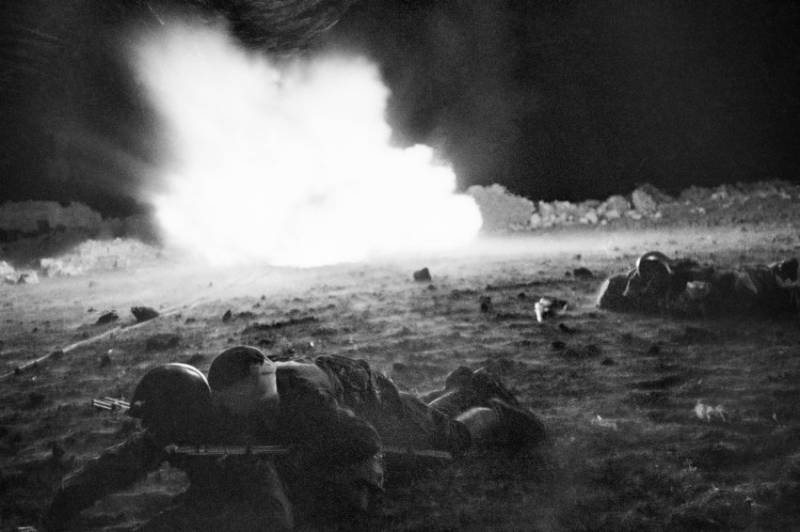
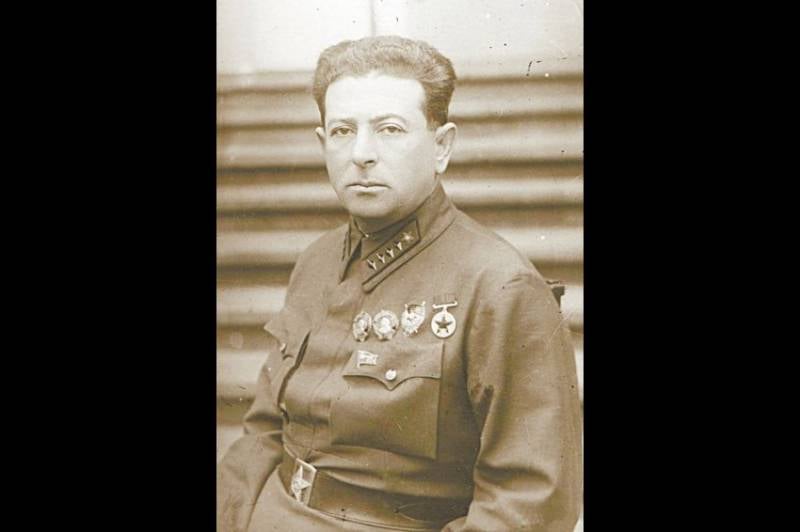
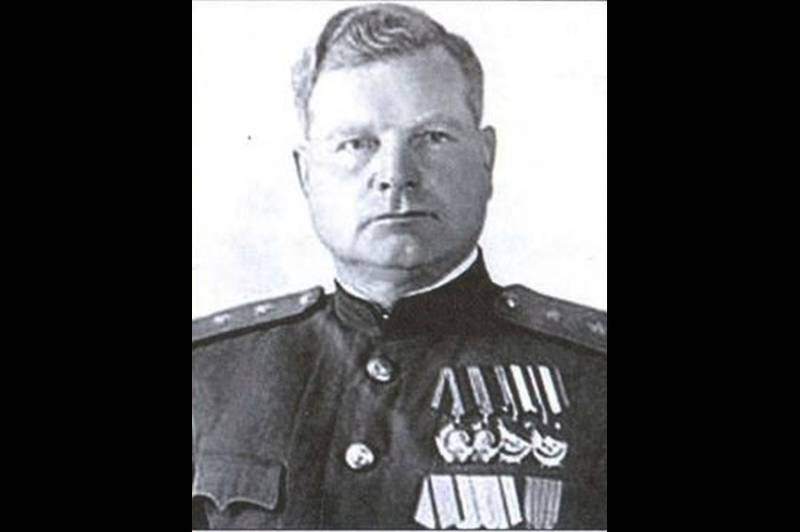
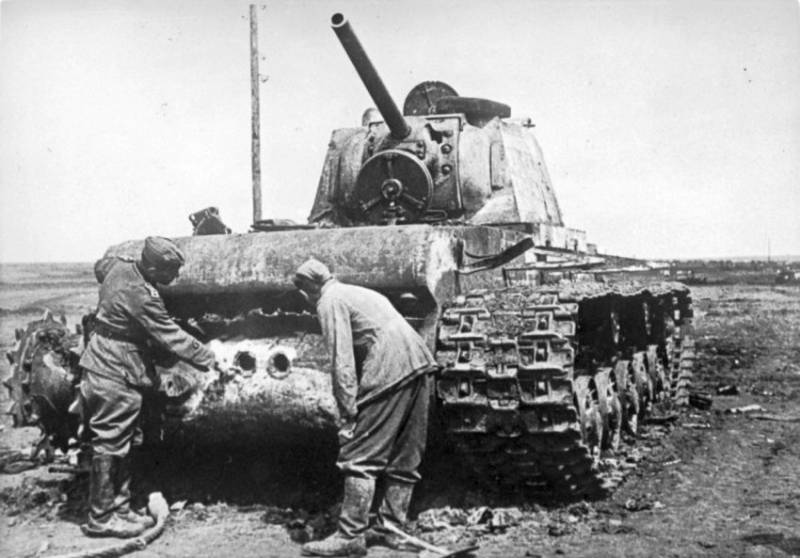
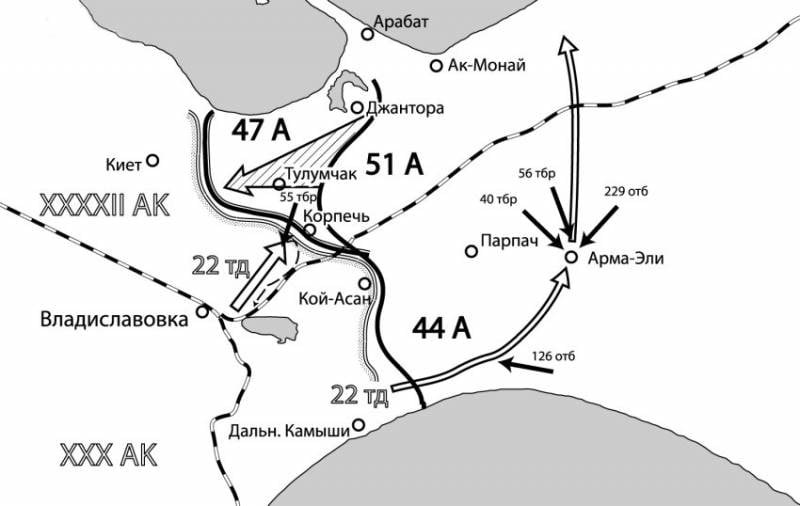
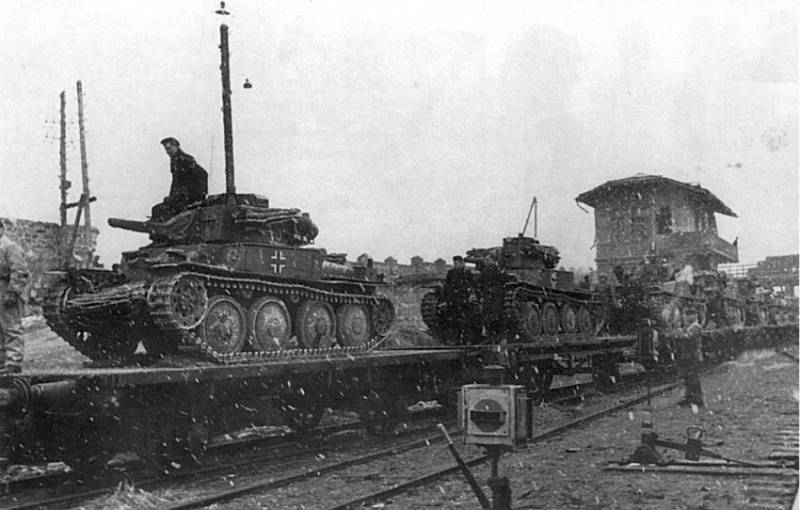
Information